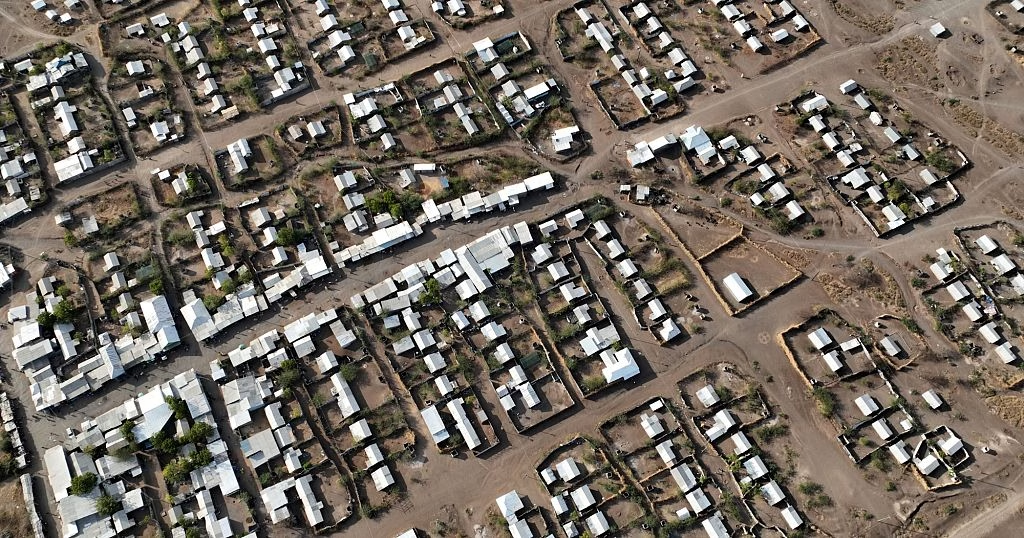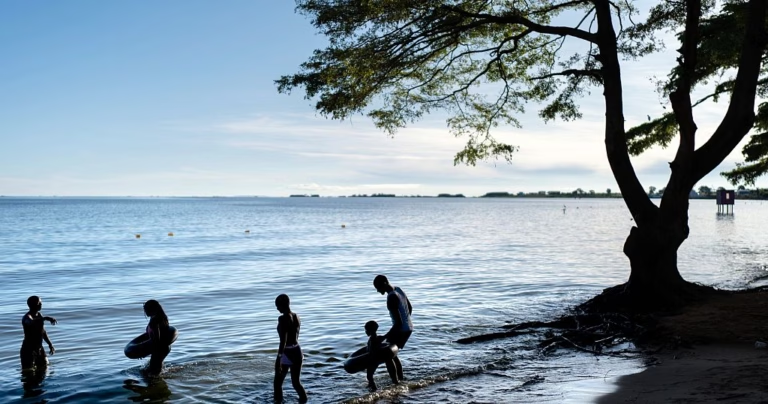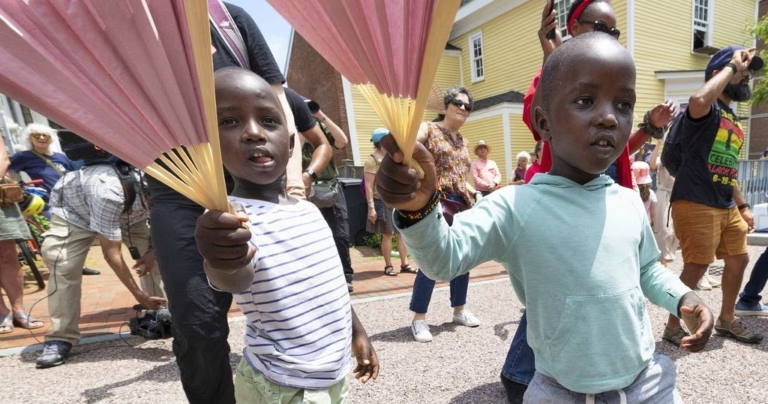
More than three decades after its establishment in 1992, Kakuma now hosts 300,000 refugees, many of whom rely on aid to survive. Some have recently clashed with police over diminishing food rations and support.
Kenya and humanitarian agencies have devised an ambitious plan for Kakuma to transform into a city.
Although it remains under the United Nations’ management, Kakuma has been reclassified as a municipality, which local government officials will run in the future. This initiative is part of a wider goal in Kenya and internationally to integrate refugees more closely with local populations and shift away from long-term aid dependency.
In due course, the refugees in Kakuma will have to support themselves financially, earning a living rather than relying on aid. The closest city is eight hours’ drive away.
Achieving self-reliance is not easy. Few refugees can become Kenyan citizens. A 2021 law acknowledges their right to work in formal employment, but only a small percentage are allowed to do so.
Refugees are prohibited from raising livestock due to the arid environment and lack of roaming space, and unable to engage in farming due to insufficient water supply. As a result, running a business becomes their sole option.
‘World-class entrepreneurs’
Starting a business requires capital, and interest rates on loans from banks in Kakuma typically range around 20%. Few refugees possess the collateral and documentation needed to secure a loan.
Julienne Oyler, who runs Inkomoko, a charity that provides financial training and low-cost loans to African businesses, mainly in displacement-affected communities, argues that denying refugees access to credit is a significant waste of human capital.
According to Oyler, refugee business owners possess the characteristics of world-class entrepreneurs, including resilience, resourcefulness, access to networks, and adaptability.
Other options include microloans from other aid groups or collective financing by refugee-operated groups. However, the amounts involved are usually too limited for all but the smallest startups.
Inkomoko’s client in Kakuma, Adele Mubalama, led seven young children on a dangerous journey to the camp through four countries after her family was forced to flee Congo in 2018.
At the camp, it took six months to locate her husband, who had fled two months earlier, and an additional six months to figure out how to make a living.
Mubalama eventually started selling fabric masks during the COVID-19 pandemic after taking a tailoring course. She borrowed from Inkomoko at half the rate charged by banks, expanded her business, and employed 26 people, making a profit of $8,300 last year.
Mesfin Getahun, a former soldier who fled Ethiopia in 2001, established his “Jesus is Lord” shops, which sell a wide range of goods, thanks in part to $115,000 in loans from Inkomoko.
Trading with other towns is also crucial. Inkomoko has connected refugee businesses with suppliers in Eldoret, a city 300 miles to the south, to eliminate expensive middlemen and integrate Kakuma into Kenya’s economy.
Other challenges
Some question the feasibility of Kakuma transforming into a thriving, self-reliant city. Rahul Oka, an associate research professor at the University of Notre Dame, argues that the camp lacks the resources and infrastructure for a sustainable economy reliant on local production.
Two-way trade remains nearly nonexistent, with supplies being sent to Kakuma but trucks returning empty. The vast majority of refugees also lack the freedom to move elsewhere in Kenya, where job opportunities are more abundant, says Freddie Carver of ODI Global, a London-based think tank.
According to Carver, the emphasis on livelihoods and self-sufficiency has overshadowed the question of rights. There needs to be a greater balance between these two aspects.
<div class="article__author--footer">
<p><strong>© 2023 The Associated Press</strong>. All rights reserved. This material may not be published, broadcast, rewritten, or redistributed.</p>
Source: http://www.africanews.com/2025/04/07/kenyas-ambitious-plan-to-turn-kakuma-refugee-camp-into-a-city/






